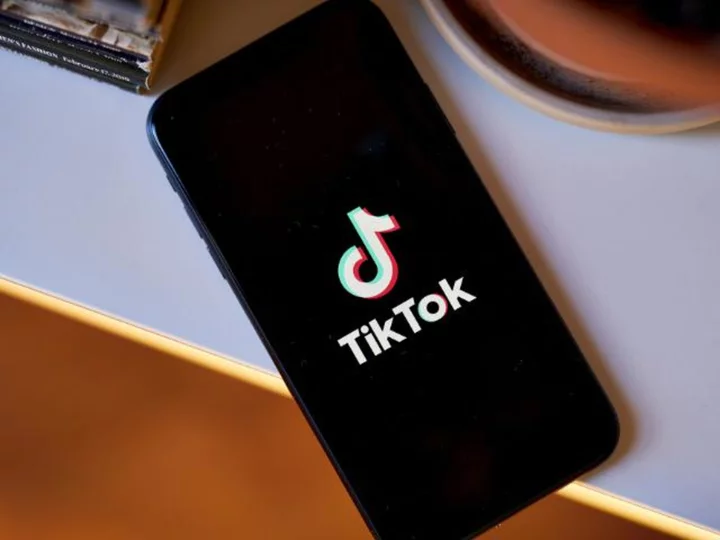A Montana federal judge on Thursday tore into a contested state law that bans TikTok from all personal devices, saying in a hearing that the legislation appears driven by "paternalistic" views of social media users and suggesting lawmakers could have taken many steps short of an attempted ban to achieve their goals.
The sharp criticism of Montana's legislature and attorney general comes as TikTok and a group of content creators on the platform have sought a ruling temporarily blocking the law.
The legal battle is closely watched because it is viewed as a bellwether for TikTok's future in the United States, where dozens of states and the US government have already banned the app on official devices but have so far refrained from blocking the app on private devices. (TikTok declined to comment on the hearing.)
Montana became the first state to authorize a complete ban on TikTok when lawmakers passed SB419 in April and Gov. Greg Gianforte signed the bill in May, prompting an immediate legal challenge hours later.
In Thursday's hearing to consider a possible temporary injunction, District Judge Donald Molloy repeatedly challenged arguments and analogies offered by Montana Solicitor General Christian Corrigan, at one point faulting Corrigan for providing "not a very good analogy."
Corrigan argued that Montana's TikTok ban is about protecting residents from data security abuses by TikTok. The text of the legislation prohibits TikTok from offering services within Montana and penalizes app store operators from providing the app for download; each offense carries a potential civil penalty of up to $10,000 per violation, per day.
Citing public reports about TikTok's links to China through its parent company, ByteDance, Corrigan said lawmakers had been responding to a widespread concern about possible Chinese surveillance of US users.
US officials have said that Chinese government influence over ByteDance could potentially lead to US TikTok users' data being exposed to Beijing — which might facilitate spying, blackmail or other espionage activity.
Attorneys for TikTok and the content creators, however, argued that the public reports alone do not amount to sufficient evidence to justify a total ban on TikTok, and added that TikTok submitted sworn declarations in the case committing that the company has not shared US users' data with China.
A judicial grilling
Molloy grilled both sides repeatedly about the standard of evidence lawmakers should have been required to provide before passing legislation enacting the ban.
"The state doesn't need to form a blue-ribbon commission to show that fire is dangerous or water is wet," Corrigan replied.
Alexander Berengaut, an attorney for TikTok, responded by quoting Attorney General Austin Knudsen's own past words about the ban that have characterized TikTok as an alleged agent of China.
"The real purpose of the statute is to declare a foreign policy for the state of Montana," Berengaut said, arguing the state law conflicts with the federal government's constitutional role as the leader on matters of foreign affairs.
Ambika Kumar, an attorney representing the group of TikTok creators, said SB419 tramples on the First Amendment rights of consumers and of TikTok itself.
"Our position is that the state has gone completely overboard," Kumar told the court. "It's not even close as to whether they regulated too much, and that's underscored by the alternatives that they had that they appear not to have even considered."
Later in the hearing, Malloy appeared to agree with that view while questioning Corrigan.
"It seems to me there are a number of things that a legislature might have or could have done," he told Corrigan. "For instance, instead of banning TikTok, regulate what data they could obtain; create some sort of criminal statute that if they obtained [data] illegally or against the will of the users, they could get prosecuted criminally ... [or] create a civil remedy" for individuals.
Knudsen could have even gone on television to issue public service announcements warning Montanans not to use TikTok, Malloy suggested.
Malloy pressured Corrigan to articulate some sort of limiting principle on the ban, and appeared concerned that Montana stands alone in issuing a flat prohibition on TikTok.
"Doesn't that seem a little strange?" he said, comparing the situation to a marching band where one player is marching out of step.
Corrigan argued that Montana is a leading state on a significant issue, and that if it were to win the case, other states could follow suit.
Elsewhere in the hearing, Corrigan compared preventing Montanans from handing their personal data to TikTok to barring a specific model of cell phone from being sold within a state due to evidence showing the cell phone model causes cancer or explodes on users.
"Well, I think that's not a very good analogy, but that's your argument," Malloy said.
"Your argument just confuses me," Malloy continued. "That's sort of a paternalistic argument that, you know, [consumers] don't know what they're doing."
Malloy vowed to issue a ruling on a possible temporary inunction "as quickly as I can."

